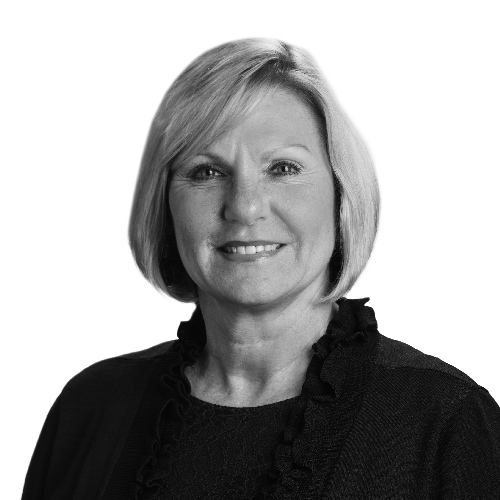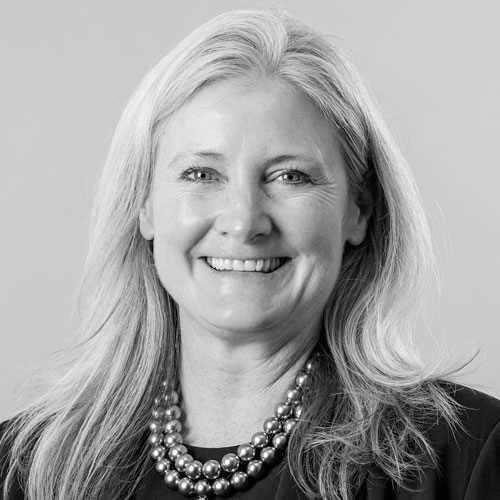According to Cynthia Pigg, pharmacy departments are often misunderstood but essential components of healthcare. Not only do they play a critical role in overall patient care, they operate as what the senior VP and chief pharmacy officer of Gateway Health Plan calls a business within a business in most organizations.
“In addition to the clinical aspects that fall under pharmacy, we also provide the business components required to manage the delivery and quality of pharmaceuticals across all benefits,” she explains.
Pharmacy services include everything from comparative and cost-effectiveness reviews of medications to drug claim processing, vendor management, and software solutions to support prescribers. As a result, managed care pharmacists in today’s environment need a broad range of skills to effectively manage their own departments and relationships with others and to successfully negotiate the trend toward value-
based operations.
Pigg believes that because medications represent such a large percentage of healthcare expenses, pharmacists need to be key players as the industry moves to focus on value rather than volume. “Pharmacists are taking on new collaborative and strategic roles assisting prescribers in achieving financial and clinical outcomes that are in line with the new value-driven environment,” she says.
“Pharmacists are taking on new collaborative and strategic roles assisting prescribers in achieving financial and clinical outcomes that are in line with the new value-driven environment.”
Part of the challenge in fulfilling that role is determining exactly what pharmacy data will be most helpful to clinicians in making optimal prescribing decisions. For example, pharmacy departments can offer insights into medication adherence, data that many physicians would not have otherwise. Pharmacy analytics can also dig deeper than simply whether patients are complying with their medication regimen. They can also reveal extenuating circumstances, such as when patients can’t afford the prescription, have no transportation to pick it up, or experience excessive side effects.
“Years ago, Surgeon General C. Everett Koop said, ‘The most expensive medicine is the one not taken,’” Pigg says. “So, the greatest value we can deliver is assisting prescribers in helping our members to be able to afford high-value medications and to take them as directed.”
Gateway helps in that pursuit by providing a culture that focuses on collaboration and compassionate care. In fact, CEO Patricia Darnley has implemented a vision that places the pharmacy in an active role on the executive leadership team, especially when it comes to developing the overall strategy. This facilitates frank and open discussions between all key functional departments, including finance, medical, and provider contracting.
“If you’re in a vacuum and your activities don’t fit the systems or priorities in another area, you haven’t accomplished much,” Pigg says. “By working directly with other specialties, we can ensure that we deliver value-based solutions that work for everyone.”
Gateway’s Ambassador Pharmacy Program
By eliminating one-size-fits-all solutions, Gateway’s Ambassador Pharmacy Program (GAP2) maximizes the value of pharmaceutical care. It leverages the power of personalized population health tools and predictive analytics to increase member and provider engagement. For example, a different strategy would be used for contacting a seventy-four-year-old retired male than for the mother of three young children. The program is also expected to make better use of available funds and other resources.
To date, Gateway’s pharmacy department, under Pigg’s direction, has implemented several innovative, practical solutions. Pharmacists are placed directly in some high-volume physician practices to streamline access to information for prescriptions that require prior authorization. They also act as partners in discharge planning—a crucial time when medication mishaps are most common and likely to result in patient readmissions.
To lead the pharmacy department through these new initiatives, Pigg relies on a unique background and career path.
Before attending pharmacy school, Pigg was a medical technologist. But she found her place in the world while earning her master’s degree in health administration. That training and experience showed her how to apply critical business components to her clinical skills. So now, when assessing problems, she goes beyond clinical concerns, such as what medications are being prescribed and whether they are being used appropriately. She might reach out to work with actuaries to identify trends, assess the impact a design change might have on operations and patients, or consult with finance to consider the pros and cons of various versions of potential changes.
“Clinicians usually aren’t trained to run businesses, and MBAs usually aren’t clinicians,” Pigg says. “Having that combination of expertise gives me a unique perspective and the ability to develop more comprehensive solutions that address both the member and the business objectives.”
This approach will be essential in addressing continually increasing drug costs and pharmacy requirements that often demand expertise in specialties such as behavioral health or oncology. To acknowledge and address such needs, Gateway has created job descriptions that differentiate between clinical, business, and analytics tracks for its pharmacists. However, Pigg admits that even though pharmaceutical management strategies have matured, the struggle to manage an unsustainable cost structure remains an ongoing issue.
Even with such sizable challenges, Pigg is still energized by contributing to positive outcomes for members. She is also excited about ongoing scientific breakthroughs that are delivering cures for conditions that were once chronic.
“Gateway is a nonprofit organization, and we all share a true passion for looking at members holistically, not simply as their medical conditions or diagnoses,” Pigg says. “We want to serve those who truly need assistance, so we are willing to try different approaches and to develop innovative solutions. That’s how we serve the philosophy that drives our mission: do the right thing for members, and the finances and business will fall into place.”
SinfoníaRx is a pioneering MTM services provider which offers innovative healthcare solutions for health partners, patients, and caregivers. Our dedicated pharmacists provide medication reviews and clinical interventions to improve health, wellness, and the management of chronic conditions. We thank our colleague Cindy for her shared commitment of improving patient care.


